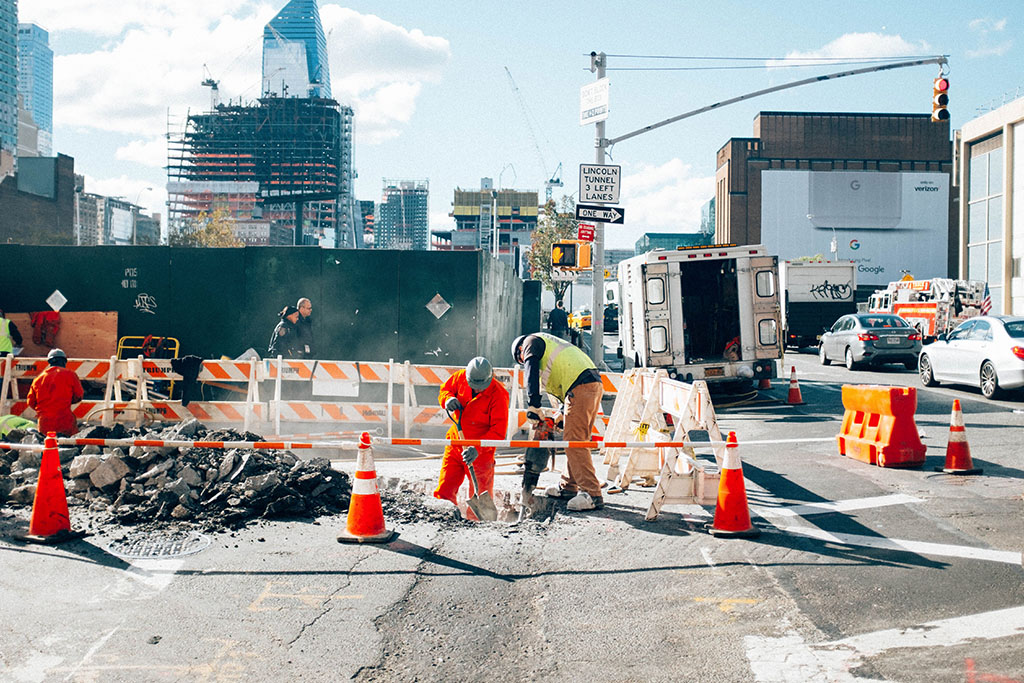.jpg?h=683&iar=0&w=1024&hash=75C73C15738E254CCF9CA178A0327D14)
Two years ago, the Adecco Group launched a campaign “#Time To Act.” Its purpose was to underscore the need for a fundamental change to our labour markets and bring the world of work into the 21st century. The ongoing technological revolution, deepening political and economic volatility, and growing labour market inequalities made it necessary for business leaders, governments, and individual workers to coalesce around a new Social Contract.
But while this new Social Contract was a necessity already two years ago, the past six months have turned it into a matter of urgency. The coronavirus pandemic has accelerated digitization of our workplaces, emphasised health and safety, and underlined the outdated ways in which some workers – but not all – are protected against unforeseen circumstances like a global pandemic.
What is the new Social Contract?
We live in tough times, and these difficult challenges that have been brought to the fore by COVID-19 require complex solutions. Ad-hoc regulatory tweaks, the status-quo, or the ‘business as usual’ will no longer suffice.
A new Social Contract for work in the 21st century offers a cross-cutting and encompassing vision that identifies, resolves, and aligns expectations and responsibilities of individual workers, businesses as well as governments.
By looking closely at what each stakeholder really needs, it becomes clear that the various expectations are not mutually exclusive. Workers, for instance, are looking for flexibility paired with protection against loss of income. This aligns closely with business needs for agility paired with economic stability.
The only way to deliver both a fairer world for workers and greater economic gains for businesses and society is, thus, through a deliberate and mindful alignment of these positions. And each of the expectations can only be met when all labour market stakeholders take their responsibilities, too. The new Social Contract sets out how to do just that! And as we recover from COVID-19 and its economic ramifications, it is time to turn the clock forward, reset normal and embrace the future.
There’s no going back – even if the road ahead will be long
In February, we published an article in which we explained that to move forward, all labour market stakeholders, including the governments, businesses, and workers, needed to engage in a good-faith dialogue. This has not changed. If anything, and at the time of political and social upheaval, collaboration is more critical than ever.
What has changed is the sense of urgency with which all stakeholders want change to happen. Arriving at a compromise that will both consider all expectations and emphasise the need for individual responsibility of governments, businesses, and workers won’t be easy. But succeeding is a prerequisite for the necessary upgrade of the world of work for the era of new technology and diverse ways of working, whether directly employed, working via an agency like the Adecco Group, or as a freelancer.
Different expectations, same ambition
So what exactly are the different expectations and responsibilities whose alignment will pave the way towards the new Social Contract?
-
Workers: not surprisingly, workers expect income security – even when they fall ill or during a pandemic. And it is the COVID-19 pandemic that has led to more appreciation of income protection measures and paid sick leave, but also simply of the ability to work flexibly and remotely. These measures have been credited for reducing the spread of the virus and protecting workers while maintaining some level of economic demand. Going forward, workers will again be looking for support to speed up labour market transitions to regain their ability to earn.
-
Businesses: many companies need and expect flexibility to respond quickly to external challenges. They need this to be able to better cope with sudden drops or surges in demand. Instead of facing bankruptcy, they would like to be able to make use of short-time work schemes such as KURZARBEIT. On the other hand, those businesses that experience a sharp increase in demand expect better access to skilled labour and will need quick upskilling and transition support for their workers.
-
Governments: governments, while often in the driving seat of many of the necessary changes, expect companies as well as workers to act sustainably and responsibly. They foresee that businesses will provide safe and healthy workplaces and avoid unnecessary lay-offs, and that workers will commit to remaining employable.
.jpg?h=759&iar=0&w=1343&hash=B1C51CC5D13FE9DF0F883B3D4A06668F)
Labour markets should not be a zero-sum game
We all have our interests – workers, businesses, and governments alike. But while on the surface these sometimes seem incompatible, or at the very least unaligned, it is crucial to realise they are all driven by the same ambition: to make the most of the opportunities of the 21st century. It would, therefore, be a mistake to perceive the necessary labour market reforms and the indispensable new Social Contract through the prism of a zero-sum game.
In fact, if handled responsibly, the current challenges that have been accelerated by COVID-19 can lead to a win-win-win situation whereby workers will gain more income security and the ability to organise their working life as they see fit, businesses will be more competitive, and governments won’t have to deal with high unemployment levels and economic hardship. To underpin all of the above, the future world of work needs a new Social Contract.



